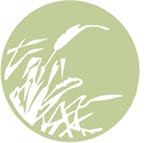In developing a mindfulness practice, I am convinced that the 1st step is the most significant. The 1st step in mindfulness (after making the choice to practice, of course) is internalization or self-awareness. We take a giant leap by learning to tune into the messages the body provides, moment by moment. Frankly, it is a meditative art in itself. It is about learning to manage one's own energy, and manage what mindfulness teacher Jon Kabat-Zinn calls, "the full catastrophe" of modern living.
For example, if you are sitting at your desk juggling emails and simultaneously finishing a weekly report; your work tempo is hectic but you are feeling pretty good about staying on pace. Well, suddenly the phone rings, it is a well-meaning friend who wants to gab away precipitously without considering your time. You fail to set a good boundary, and suddenly you have gone from being, "in a groove" to being swamped trying to do 3 or 4 things at once! It is the final straw - subtly, ever so slightly, the jaw begins tightening, and a faint,throbbing, pulsing feeling awakens in the temple area. The problem though, at this beginning stage of the mind-body stress response, is that many people would not awaken and take notice.
This is where a significant difference exists between one who practices mindfulness and one who does not. At this moment, the body's wisdom shouts: "Red flag! Red flag! Heed; stop; and, take action." If one intervenes, and activates the parasympathetic nervous system e.g., the relaxation response, she has the opportunity to avert a forest fire (such as for example a potentially severe migraine). Of course additional biopsychosocial factors come into play concerning migraines, such as allergies, genetics, environment, among others; all things being equal, however, learning to relax will help minimize fallout from the stress response.
In this brief article, I have outlined merely one possible example but our body is providing signals constantly during the day, directed by the subconscious mind. The more we practice mindfulness, the more it becomes natural to "tune in" to the subtle wisdom the body provides, to be proactive with our health and wellness, and to avert more serious problems.
Subscribe to:
Post Comments (Atom)

Thank you Paul. I find that when I'm getting away from myself that my Journaling is a meditative practice that brings me back to center. Lately, I'm combining meditation, sometimes before, sometimes during or sometimes after Journaling and that certainly helps better my health.
ReplyDeleteYes, I agree Mari, and I am sure you are familiar with the research of Pennebaker and others regarding disclosure through writing and its effects upon health. Plus, writing can be fun, and fun always helps!!
ReplyDeleteHi,
ReplyDeleteYou've got a really nice weblog. Most of the people don't comprehend what mind power can do to one's achievement.
Hi,
ReplyDeleteYou have an extremely nice blog. To become a prosperous person the essential factor would be to have positive thinking.